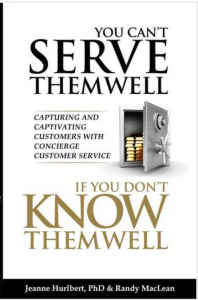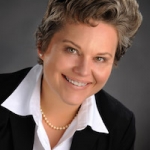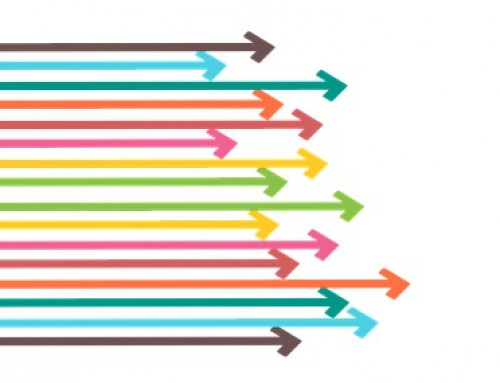
In the companies with whom we work, the shift to the Concierge Customer Service system goes hand-in-hand with increased specialization of sales. Bureaucracy often has negative connotations, but two of the hallmarks of bureaucratic organization—two of the characteristics that make bureaucracies efficient—are specialization and division of labor.
But in most wholesale distribution companies, the sales role continues to evidence a low level of specialization: Salespeople find themselves generating prospects, qualifying leads, setting appointments, making presentations, doing follow-up calls, providing customer service, and sometimes even bearing responsibility for account collections. That diverse sales role proves to be highly inefficient for your organization. It can also create deleterious consequences for the salespeople, themselves.
Internal surveys often reveal high levels of work stress among salespeople, who frequently feel that they “have too much to do in the time available.” Given the wide range of tasks salespeople are typically expected to complete, this should come as no surprise.
Increasing the division of labor and specialization around sales can reduce stress for your salespeople and increase your company’s efficiency. This model, introduced by Justin Roff-Marsh (2015) in The Machine, has been embraced by innovative wholesale distributors. At its core, increasing sales specialization entails moving the responsibility for generating and qualifying leads to specialists who focus solely on doing so. These individuals, who are typically salaried, build and run systems that generate leads more efficiently than most salespeople can. Another specialist then sets appointments with qualified leads, on the salesperson’s calendar. The efficiency gains come not only from this increased division of labor and specialization but also from the fact that the skilled lead specialists typically generate highly-targeted leads for salespeople.
This division of labor frees the salespeople to focus on sales presentations and to become exceptionally skilled at converting prospects through those presentations. Part and parcel of this process is moving salespeople away from relationship selling by providing them with business reasons for prospective customers to do business with you.
At its core, relationship selling rests on a recognition that we don’t really have anything from a business standpoint to offer the customer that differentiates ourselves. Instead, we have a sales model. In many companies, relationship selling just comes down to the customers’ liking our salesperson better than the salesperson of our competitor—and we hope that will win the day. Clearly, that proposition proves risky. Particularly because it means that, if the salesperson leaves, his or her customers may follow. That’s not good for your company.
Let’s consider this concept of relationship selling in the context of Max Weber’s analysis of bureaucracy. Weber situated the rise of bureaucracy in the broader transformation of society from one dominated by personal relationships into one increasingly governed by rational principles and economic transactions. When we consider that Weber produced this analysis in the 19th century, we notice that the sales role, as it currently exists in wholesale distribution, resembles an economic model of the 18th and 19th centuries.
How can you move beyond that model to “rationalize” sales in your organization? By implementing Concierge Customer Service so that you can transform prospects to customers who will remain loyal, buy more from you, and make transaction decisions based not just upon personal feelings, but also upon rational assessment. That’s how you move sales in your organization from a 19th- to a 21st-century model.
But don’t stop there. The market penetration function, which transforms money-losing accounts into money-making accounts, also represents a form of rationalization. The accounts that sit mired at the bottom of your profitability ranking report cost you money because their high volume comes with a correspondingly high cost to serve. That high cost to serve overwhelms the gross profit that the accounts can produce. As we introduced earlier, “reforming” those accounts can be as simple as having your salespeople invite them to become platinum accounts by meeting platinum logistical requirements, so they receive the Concierge Customer Service that will make their lives easier and their businesses more profitable. Your salespeople, then, provide a rational basis for the behavior change. They might explain to less-profitable customers that, “The problem that we have right now is your account is out of balance because we’re delivering things too frequently, in too-small quantities, and that’s destroying your ability to be profitable and our ability to provide the service that we provide to other companies.”
One of our clients identified a “mid-tier” of customers who were of sufficient size to generate much greater profit than they were currently generating. By articulating clearly both the requirements to qualify for Concierge Customer Service and the benefits for the customer of making these changes, they converted several accounts from money-losing to money-making status. And, because they then reported quarterly to these customers on the benefits the customers had received, in terms of problems solved and money saved by the Concierge Customer Service representatives, these customers continued to contribute to the company’s bottom line.
 Want to learn more?
Want to learn more?
This blog post is based off material from my book with Randy MacLean:
“YOU CAN’T SERVE THEM WELL IF YOU DON’T KNOW THEM WELL: Capturing and Captivating Customers with Concierge Customer Service™”
You can get the first two chapters for FREE here.
If you’d like a full copy of the entire book, you can get it here.
 Randy MacLean is the founder of WayPoint Analytics, and the creator of the WayPoint system. His company provides analytical and advisory services to companies that have become profit-leaders in distribution.
Randy MacLean is the founder of WayPoint Analytics, and the creator of the WayPoint system. His company provides analytical and advisory services to companies that have become profit-leaders in distribution.
The WayPoint system calculates detailed costs for every aspect of distribution industry clients, so they have precise knowledge of activities that make or lose money and why. With these insights, the companies identify and focus on the markets, customers, products and processes best for the bottom line.
An expert on profit-driving best practices and with a broad range of analytics-driven solutions to difficult profit challenges, Randy speaks, writes and advises executive teams across North America. His clients routinely outperform their peers and their markets.
 Dr. Jeanne Hurlbert, President of Hurlbert Consulting is an expert in sociology and survey research. After spending more than 25 years in academia, she now uses her extensive behavioral science expertise to help companies like yours distinguish yourselves through customer service. What sets her approach to customer service apart is that she begins by helping companies meld research and marketing to find out:
Dr. Jeanne Hurlbert, President of Hurlbert Consulting is an expert in sociology and survey research. After spending more than 25 years in academia, she now uses her extensive behavioral science expertise to help companies like yours distinguish yourselves through customer service. What sets her approach to customer service apart is that she begins by helping companies meld research and marketing to find out:
(a) exactly what their customers want and
(b) exactly how well they’re succeeding in giving customers what they want.
You can schedule a consult with her by going to www.ConciergeCustomerService.com; you can call her at 888-590-9677; or send an email here. And, if you’d like to complete her complimentary assessment to see how well you’re doing in knowing and serving your customers well, just go to www.FixYourService.com.





